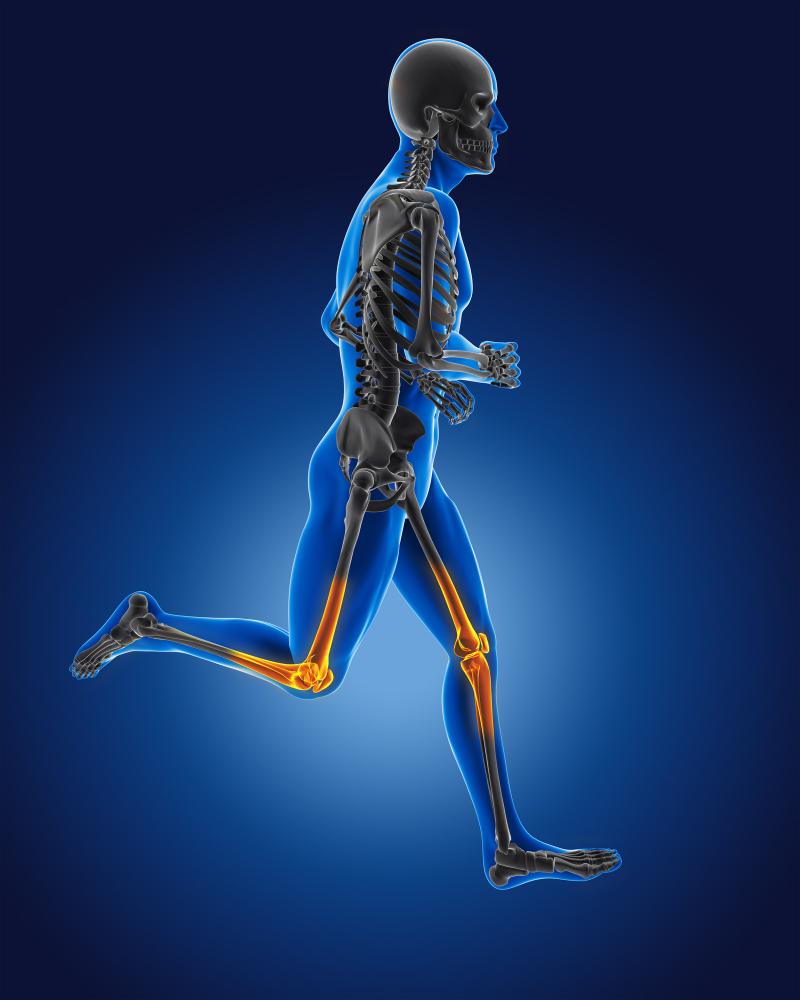
Nutritional Science Highlights Tocotrienols in Bone Regeneration Advances
Bones are the body’s primary structural and supportive tissue, playing a vital role in maintaining strength and health. They constantly undergo a natural process called remodeling where the old bone is broken down, and the new bone is formed. In youth, bone formation outpaces breakdown, making bones denser and stronger. However, as you age, this balance shifts, bone density decreases, and the risk of injury increases.
That’s why it’s so important to take care of your bone health early on. It will help you build strong bones now and protect them as you age. But there are so many other factors that may affect your health. Let’s find out!
What factors affect your bone health?
- Physical activity: Exercise can strengthen bones. People who aren’t physically active are at a higher risk of osteoporosis than those who exercise regularly.
- The amount of calcium in your diet: A diet low in calcium may lead to low bone density, early bone loss, and easily broken bones.
- Hormone levels: Hormones affect bones, and too much thyroid hormone can cause bone loss. There’s usually a lot of bone loss around the time of menopause due to a decrease in estrogen levels. Low testosterone levels may also cause a loss of bone mass.
- Gender: Females are at higher risk of osteoporosis than males because they have less bone tissue.
- Family history: If a parent has osteoporosis or has experienced fractures, your likelihood of developing the condition increases as well.
These are the factors that affect your bone health, but there is no need to worry! There are simple ways to keep your bones strong and healthy. Scroll down to find out!
How do you improve your bone health?
Here are a few tips to help you to preserve bone health:
- Exercise: Exercise, such as strength training and weight-bearing exercise, can help increase bone formation during bone growth and protect bone health in older adults, including those with low bone density.
- Fruits and vegetables: Fruits and vegetables are packed with vitamins, minerals, and fiber. Including them in your diet helps improve bone health.
- Calcium: Calcium is the most important mineral for bone health. The best way to consume calcium-rich foods is through dairy products, including milk, cheese, yogurt, etc.
- Maintain weight: Did you know that overweight people are at a high risk of bone-related disease? So, it is essential to maintain a moderate weight for bone density.
- Bone-boosting supplements: Many people include calcium and vitamin D in their routines to support strong bones. But now, researchers are exploring other natural nutrients that may also play a role—like tocotrienol, a unique form of vitamin E found in the annatto plant.
So, what exactly is vitamin E tocotrienol, and how does it support bone health? Let’s explore.
What Are Tocotrienols, and How Are They Different from Regular Vitamin E?
Tocotrienols are a potent form of natural Vitamin E. They consist of eight distinct molecules, divided into two families: tocopherols and tocotrienols. Both families include four members: alpha, beta, delta, and gamma, each with powerful antioxidant and anti-inflammatory properties.
However, there is a big difference between tocotrienol and tocopherol. Tocotrienol has unsaturated side tails, which makes it far more effective at penetrating cell membranes than tocopherols. Tocotrienol is known for its potent antioxidant and anti-inflammatory properties. But the question arises: How does tocotrienol help improve bone health? Let’s discuss.
What the Research Says: Can Tocotrienols Improve Bone Health?
Reduces inflammation and oxidative stress:
Weak bones increase the risk of fractures and can lead to more inflammation and oxidative stress in the body. When bones break down faster than they rebuild, an imbalance created that triggers harmful chemical reactions, which may worsen bone loss and affect overall health.
A preclinical study conducted on animals showed that tocotrienols can reduce bone loss by up to 30% and help increase bone formation by 15-25%. It also significantly helps in reducing inflammation and oxidative stress (which weaken bones).
May Support Bone Regeneration:
As we age, your bones naturally start to lose strength. This happens because the body breaks down old bone faster than it builds new bone. Over time, this can lead to thinner, weaker bones and a higher risk of fractures. That’s why it is important to take care of your bone health. Certain nutrients, like tocotrienols (a form of vitamin E), may help slow down this bone loss and keep bones strong.
A preclinical trial conducted on animals showed that tocotrienols helped improve bone structure, increase bone formation, and reduce bone breakdown. It also helps in managing bone loss as you age.
May Help Prevent Bone Loss in Postmenopausal Women
After menopause, women experience a drop in estrogen; a hormone that plays a key role in keeping bones healthy. This drop in estrogen level can cause bone loss to speed up, making bones weaker and more prone to fractures.
In one preclinical study, scientists used female rats to explore how tocotrienol, a form of vitamin E, affects bone health, especially in conditions mimicking postmenopausal osteoporosis. Researchers removed the ovaries of some rats to simulate estrogen deficiency, a common cause of bone loss in postmenopausal women.
These findings suggest tocotrienol supplementation helped prevent bone loss by reducing levels of inflammatory markers (like interleukin-1 and interleukin-6) and a bone formation marker (osteocalcin), indicating a decrease in bone turnover.
Support Osteoblasts and Curb Osteoclasts
Did you know that weakened bones can upset the balance between osteoblasts (the cells that build bone) and osteoclasts (the cells that break it down)? When bone becomes weak, osteoclasts may become more active than osteoblasts, leading to faster bone loss. This imbalance may also increase the risk of developing osteoporosis; a condition that often goes unnoticed until a fracture occurs.
The narrative review published in 2014 found that tocotrienol helps protect bones by reducing inflammation and oxidative stress. It also supports the activity of bone-building cells (osteoblasts) and slows down the activity of cells that break down bone (osteoclasts). It also helps in improving conditions like osteoporosis.
So, isn’t it amazing that one natural compound, Vitamin E Tocotrienol, strengthens bones and supports postmenopausal women with osteoporosis, helping them enjoy their best years to the fullest?
Conclusion
Our bones are truly the foundation of our body; without strong bones, everything we do becomes difficult. As we get older, our bones can get weaker, but that doesn’t mean we have to just accept it. Taking care of your bones naturally is possible! Eating well, exercising, and even using natural supplements like tocotrienol can help keep your bones strong and healthy. Many studies show that tocotrienol, a special form of vitamin E, works amazingly to protect bones, reduce inflammation, and support bone growth; especially for women after menopause. So, there’s no need to worry. With the right care; you can keep your bones strong and enjoy an active, healthy life for years to come! And always remember, the journey to better bone health starts with small and consistent steps.



 Bitcoin
Bitcoin  Ethereum
Ethereum  Tether
Tether  XRP
XRP  USDC
USDC  Lido Staked Ether
Lido Staked Ether  TRON
TRON  Cardano
Cardano  Avalanche
Avalanche  Toncoin
Toncoin  Wrapped SOL
Wrapped SOL